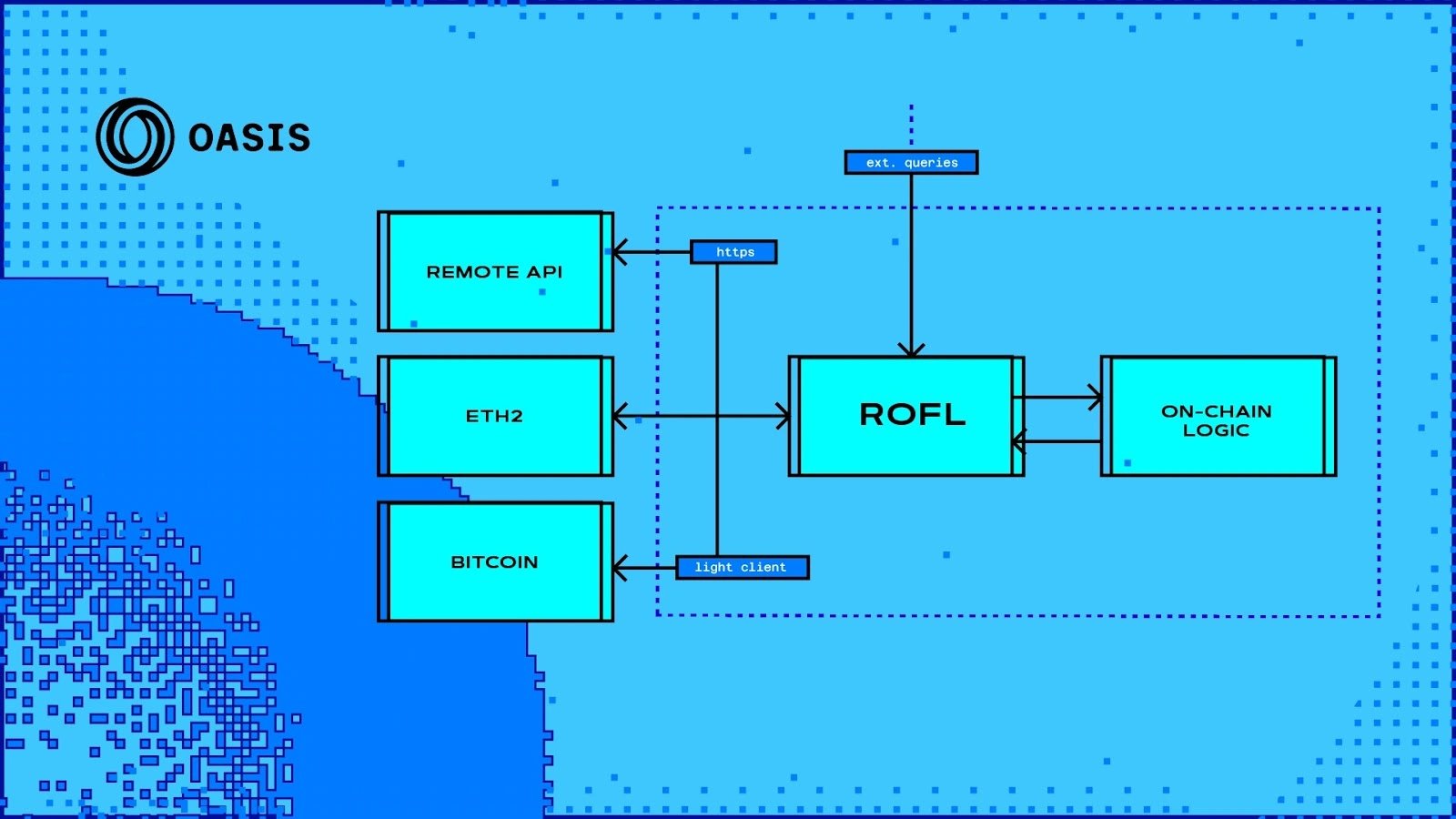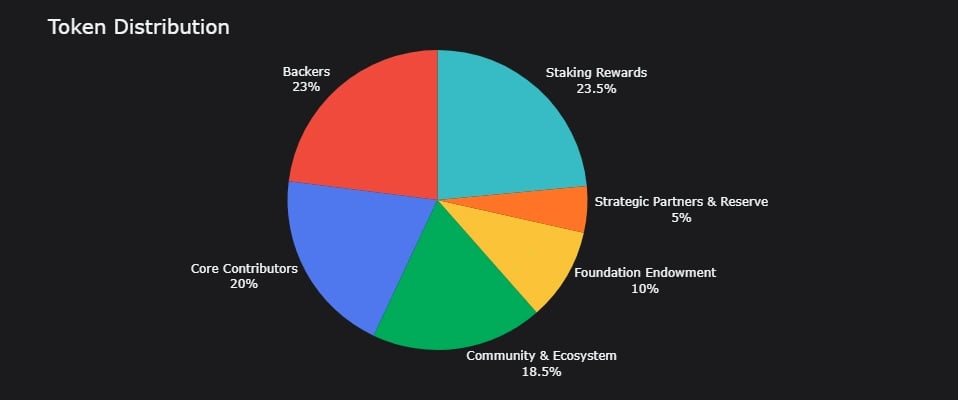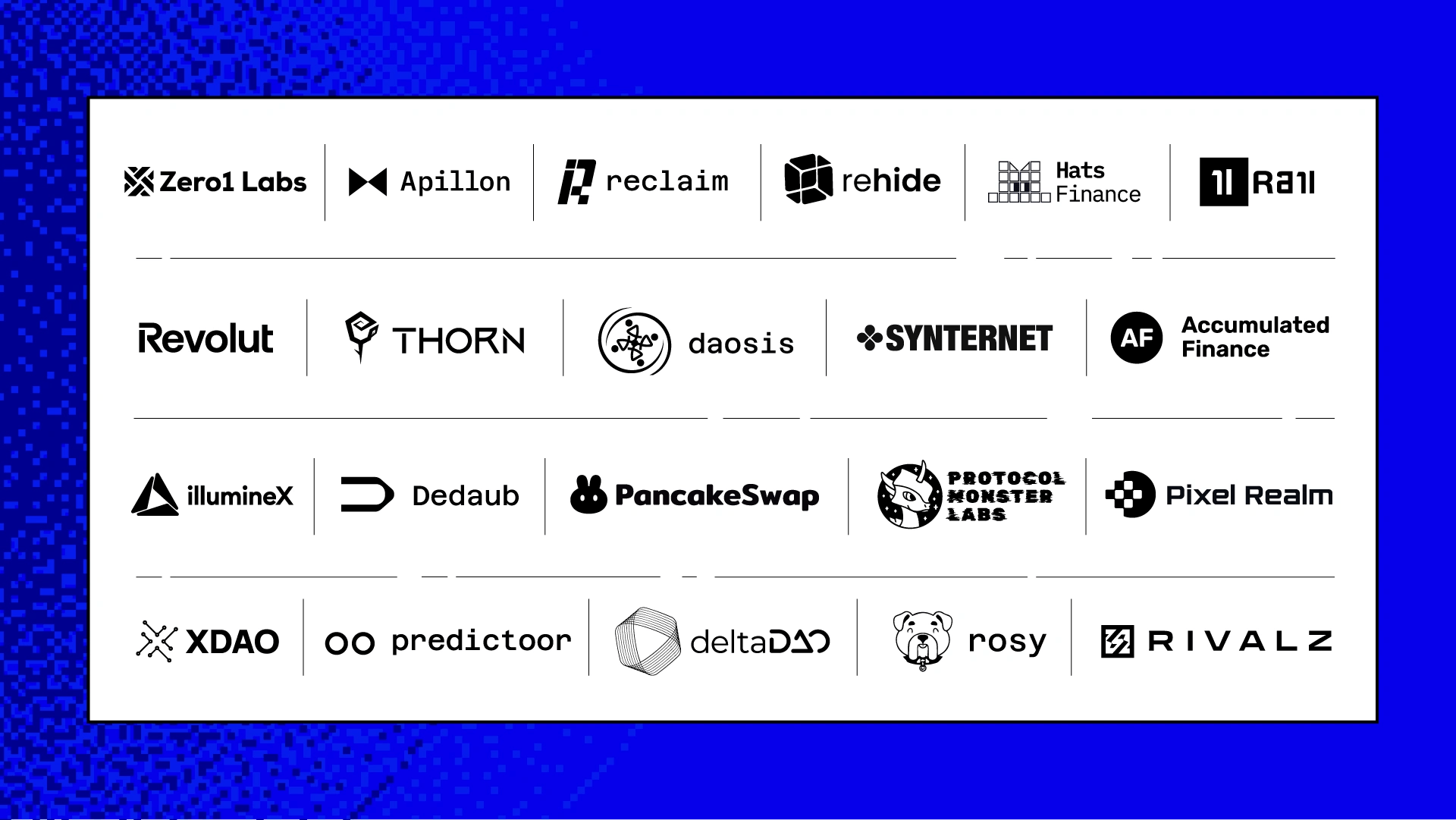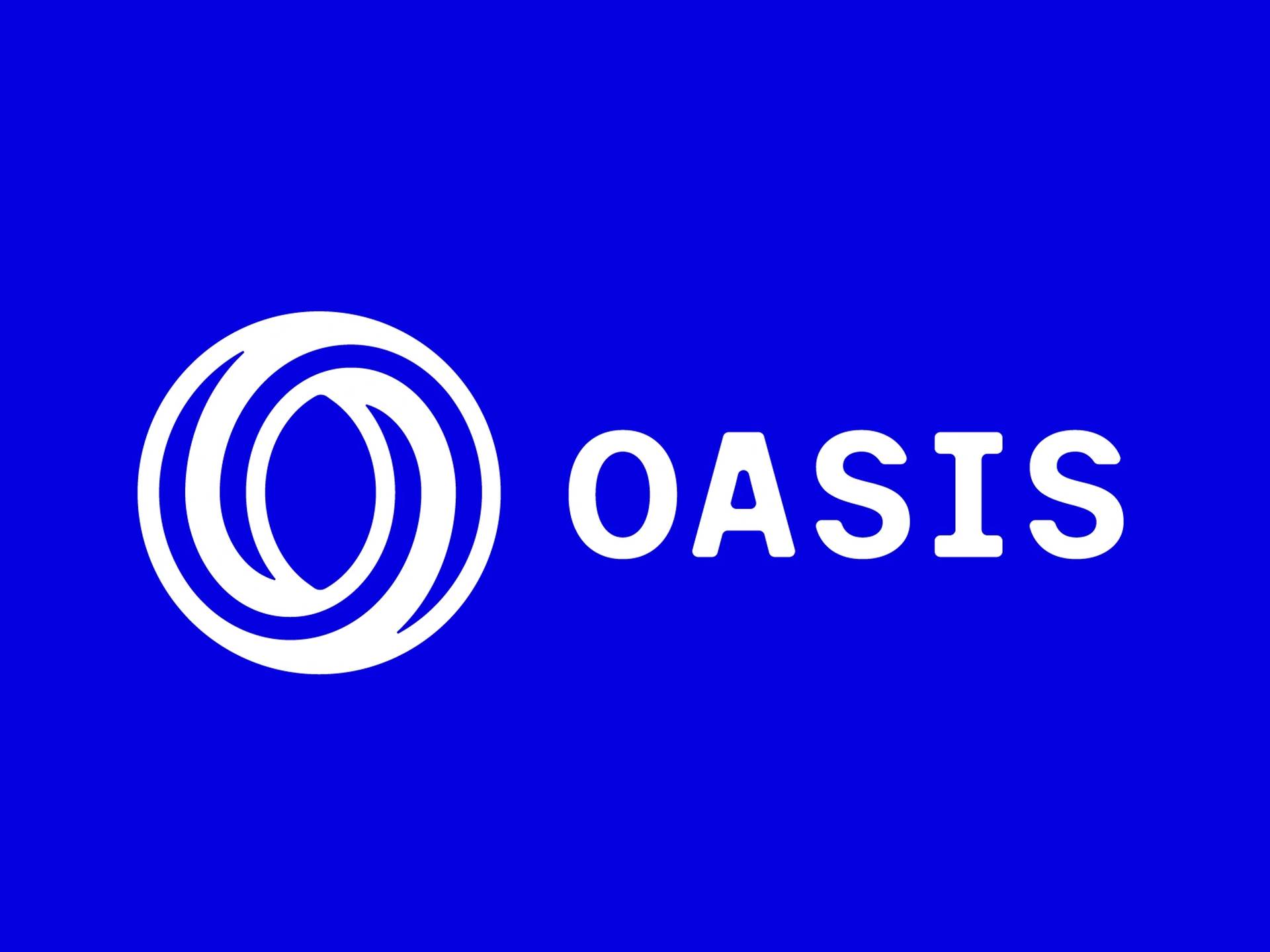Subscribe to wiki
Share wiki
Bookmark
Oasis Network
The Agent Tokenization Platform (ATP):Build autonomous agents with the Agent Development Kit (ADK)
0%
Oasis Network
The Oasis Network, developed by Oasis Labs, is a decentralized network designed to provide users with control and ownership of their data, fostering the development of inventive privacy-focused applications and use cases. [4]
Overview
The Oasis Network is a decentralized platform focused on privacy and built on a proof-of-stake mechanism. It empowers users to control their data while supporting the development of privacy-centric applications. The network is built around four core features: confidentiality and data integrity, decentralized auditability, versatility for various use cases, and practical performance for real-world use.
These features are enabled by a dual-layer design: the Consensus Layer, which handles decentralized ledger functions, and the ParaTime Layer, which supports privacy-preserving computation. The network can support multiple runtimes simultaneously while maintaining security. Oasis also allows users to tokenize their data, protecting it from centralized control and enabling the development of privacy-preserving services and applications. [4]
Technology
Consensus Layer
The consensus layer is a scalable, high-throughput, secure, proof-of-stake consensus run by a decentralized set of validator nodes. - Oasis Documentation [1]
The Consensus Layer is designed to be adaptable and responsive, efficiently accommodating diverse use cases and addressing technological shifts. It employs discrepancy detection to ensure transaction accuracy, utilizing a committee of compute nodes that undergoes reselection in case of discrepancies. Once verified, this layer maintains an immutable record of ParaTime actions, contributing to action integrity.[4]
Regarding confidential computing, the Consensus Layer features unique elements for runtimes using techniques like HME and ZKP. Oasis Labs made the Oasis Eth/WASI Runtime open source, which employs Trusted Execution Environments (TEEs) like Intel SGX secure enclaves to ensure the confidentiality of transactions. Being entirely open source, anyone can set up an instance and connect it to the Consensus Layer. [4]
ParaTime Layer
The ParaTime Layer supports multiple parallel runtimes (ParaTimes), each representing a replicated computing environment with a shared state. It receives transactions from clients and enacts state changes based on them. The ParaTime layer operates fully decentralized, allowing individuals to create and customize their own ParaTime. Each ParaTime can be tailored to meet the specific requirements of an application, whether it involves confidential computing, open or closed committees, or other specifications. A ParaTime doesn't handle its consensus, simplifying development and enhancing integration into the overall network. ParaTimes manage computation, and discrepancy detection is employed to ensure the correctness and integrity of execution. The Oasis Network holds three ParaTimes developed by Oasis Labs: Sapphire, Emerald, and Cipher. [1][4]
Sapphire
Sapphire is a confidential Ethereum Virtual Machine (EVM) tailored for Web3, providing flexible privacy options for developers, users, and brands. It allows the creation of dApps with varying levels of confidentiality, ranging from fully public to fully private while ensuring secure encryption and storage for contracts handling sensitive data. dApps built on other EVM networks can be easily transferred to Sapphire with minimal adjustments, maintaining compatibility with tools like MetaMask, Truffle, and Hardhat. The platform includes precompiled contracts for essential processes such as random number generation and cryptographic verification, and it offers free eth_call operations, enabling access to private states without user costs. Additionally, Sapphire supports secure Web2 authentication, making it ideal for dApps requiring credentials from modern mobile devices and browsers.[5]
Emerald
Emerald is an EVM-compatible ParaTime designed to boost transaction throughput to 1,000 per second and lower fees for Solidity developers. It operates fully decentralized with globally distributed node operators and uses Oasis ROSE as its native token for gas fees. Emerald offers full EVM compatibility, seamless integration with EVM-based dApps, improved scalability, significantly lower transaction fees (over 99% less than Ethereum), and cross-chain bridge functionality for interoperability. [6]
Cipher
Cipher is a ParaTime that uses WebAssembly (WASM) and focuses on privacy. Developers can use the Oasis Contract SDK with Rust to build confidential decentralized applications (dApps). It offers the same benefits as the Emerald ParaTime with added flexibility and security. Developers can choose between public and confidential data storage based on cost. WASM smart contracts, primarily written in Rust, enhance security by minimizing the risk of memory leaks through strict memory management. [7][8]
Oasis Privacy Layer (OPL)
The Oasis Privacy Layer (OPL) is an EVM-compatible privacy solution that enhances smart contracts on networks like Ethereum, BNB Chain, and Polygon by introducing encrypted transactions and confidential states. Developers can easily add confidential states and selective disclosures to their dApps through a Solidity library integrated with Sapphire while maintaining compatibility with existing networks.
OPL offers customizable privacy, allowing dApps to be fully public and confidential. It enables privacy features to run on Sapphire via OPL while keeping users and assets on their original networks. OPL also supports cross-chain privacy, improving user safety by synchronizing dApp states between networks using Sapphire's secure runtime. It lets Solidity developers adjust transparency levels to suit their application's needs. [9]
Runtime Offchain Logic (ROFL)

Runtime Offchain Logic (ROFL) is a framework enabling decentralized, verifiable, and confidentiality-preserving applications. ROFL allows custom off-chain logic, meaning programs outside the blockchain, to be verifiably connected to on-chain logic using trusted execution environments (TEEs). This off-chain computation operates asynchronously, communicating with on-chain components through transactions or events while maintaining trust through TEEs. [20][21]
ROFL enhances performance and flexibility by using TEEs outside the blockchain context, enabling cost-effective and verifiable computations without compromising trust. It expands the capabilities of the Sapphire runtime, allowing complex off-chain workloads with on-chain guarantees of verifiability and confidentiality. Verifiability ensures node operators handle data correctly, while confidentiality protects sensitive application data. [20][21]
ROFL relies on TEEs (Intel SGX), remote attestation, and a decentralized validator set. An Oasis node provisions the TEE, where ROFL apps execute off-chain and register with the Oasis Network to authenticate and interact with smart contracts. ROFL generates cryptographic keys inside the TEE for remote attestation, ensuring secure communication with on-chain modules and external systems. [20][21]
Oasis Nexus
Oasis Nexus operates as the official indexer tool for the Oasis Network, functioning as the backend for explorers and wallets. It continuously fetches blockchain data from one or more Oasis nodes and other pertinent sources. This data is processed, and the resulting information is stored in an indexed SQL database. The database, in turn, enables access to the data through a JSON-based web API. [10][12]
The API follows the OpenAPI Specification (OAS) 3.0, ensuring compatibility with various systems. It includes essential routes such as the latest block numbers and times, making it user-friendly for Web3 builders, dApps, and other on-chain applications. [12]
Oasis Nexus dynamically sources data from multiple entities, primarily the Oasis node linked to the consensus and ParaTime layers. Additional sources include the metadata registry for validator metadata, Sourcify for verifiable source code of EVM smart contracts, and IPFS for more details on individual NFT instances. [12]
Besides data queries and visualizations, Oasis Nexus's indexer feature is an analytical tool for accounting and tax records tasks. It provides account-centric event and transaction histories, supporting accurate financial audits, tax accounting, and other financial activities. [12]
Oasis Wallet
The Oasis Foundation provides two non-custodial wallets: Oasis Wallet - Web and Oasis Wallet - Browser Extension. These wallets interface with the Oasis Network, allowing users to store, send, and receive ROSE tokens. Additionally, Oasis Safe by ProtoFire on Sapphire and collaboration with Transak offer custody options and easy user onboarding. [10][11]
The Oasis Wallet offers several functionalities, including wallet creation with a mnemonic recovery phrase, access via mnemonic phrase, private key, or Ledger device, viewing transaction history, submitting transactions, managing multiple accounts, toggling light/dark modes, UI language selection, staking, and receiving staking rewards. Users can also easily switch between wallets using the ADR-8 standard account key generation process. [10][11]
Oasis Explorer
Oasis Explorer offers a user-friendly exploration of on-chain activities within the Oasis Network. It presents comprehensive data and analytics covering all Oasis runtime environments, enabling users to analyze the network's growth and development. [10]
Oasis Ecosystem Fund
In 2021, the Oasis Foundation introduced its Oasis Ecosystem Fund. Valued at $235 million as of December 2023, the Ecosystem Fund is committed to supporting founders in building the future of Web3 on the Oasis Network. [13][14]
ROSE Token
ROSE serves as the native token within the Oasis Network, fulfilling various roles such as covering gas fees, supporting staking, delegation, and facilitating governance activities. [2]
Token Distribution

- 23.5% – staking rewards
- 23% – backers
- 5% – strategic partners & reserve
- 18.5% – community & ecosystem
- 10% – foundation endowment
- 20% – core contributors [15][19]
Funding
On July 9, 2018, Oasis Labs disclosed securing $45 million in funding from notable backers, including a16zcrypto, Accel, Binance, DCVC (Data Collective), Electric Capital, Foundation Capital, Metastable, Pantera, Polychain, and others. [3]
Partnerships
- Binance
- Covalent
- Chainstack
- Gnosis Safe Fork
- Personal.AI
- Enshrine Computing
- Celer Network
- Meta
- YuzuSwap
- Nebula Genomics
- Genetica
- Equifax
- Beefy.Finance
- XDAO
- WePiggy
- Multichain
- Bitmark
- Wormhole Network
- BMW Group
- ThetaNuts
- Band Protocol
- API3
- Equalizer
- Tidal
- Sperax
- Darwinia
- StaFi
- Meter
- Anchorage
- MetaMirror
- Zero1 Labs
- Apillon
- Reclaim
- Rehide
- Hats Finance
- Ra1l
- Revolut
- Thorn
- Daosis
- Synternet
- Accumulated Finance
- illumineX
- Dedaub
- PancakeSwap
- Protocol Monster Labs
- Pixel Realm
- XDAO
- OO Predictoor
- deltaDAO
- Rosy
- RIVALZ [16]

Alliances
See something wrong?
The Agent Tokenization Platform (ATP):Build autonomous agents with the Agent Development Kit (ADK)
